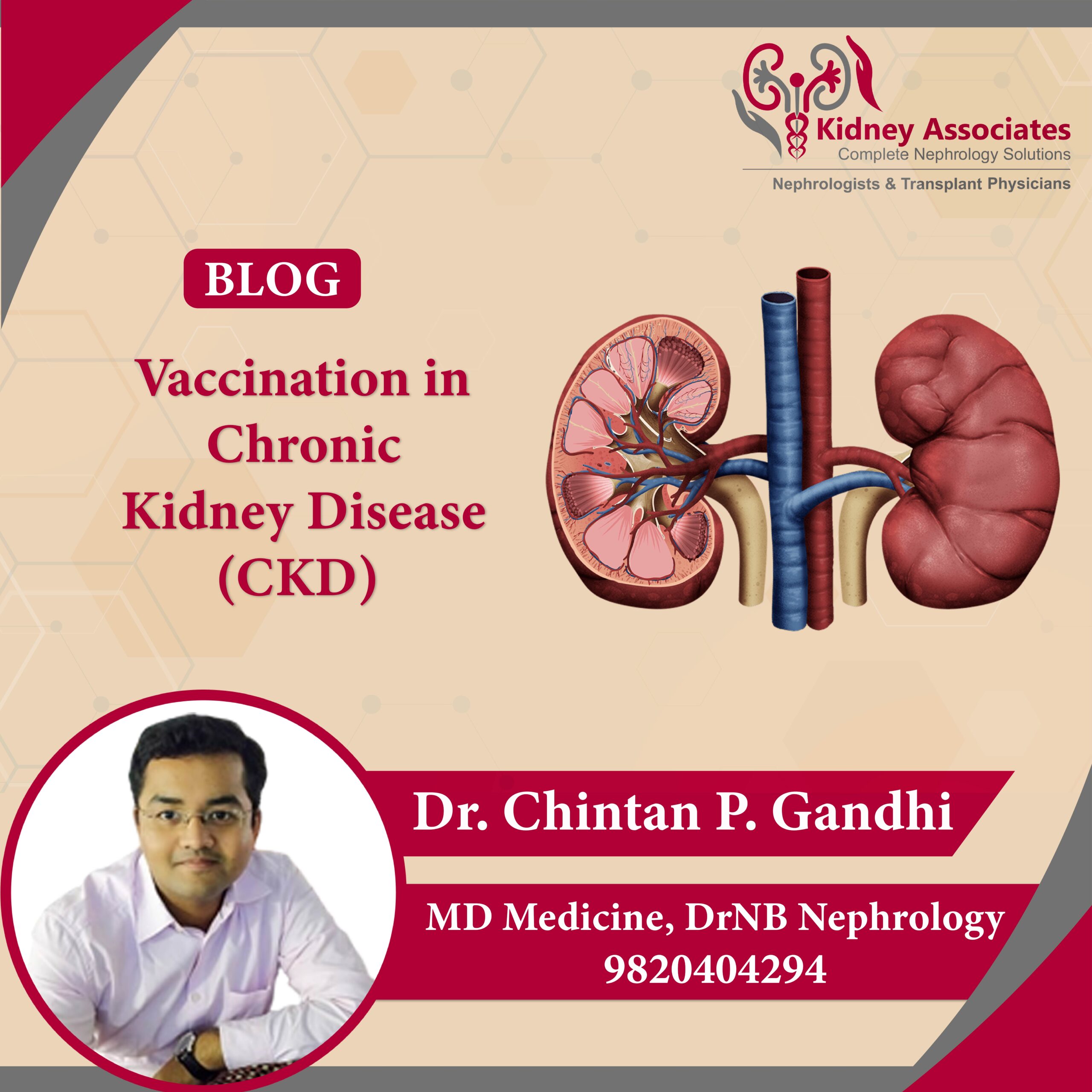Introduction
Chronic kidney disease (CKD) poses unique challenges to the immune system, making individuals more susceptible to infections and their complications. Apart from having an impact on patients health by causing life threatining infections (Eg. Pnemumnia) it also poses financial burden to patient as per session cost of dialysis of CKD patient with Hepatitis B or C infection will be twice as the cost of noninfected patient. Vaccination plays an important role in preventing infections in CKD patients. Vaccination is the one of the most important part in management of CKD however it is often neglected.
HEPATITIS B VACCINE
· Hepatitis B vaccination is recommended for all CKD patients
· Patients should receive four doses of hepatitis B vaccine as early in the course of disease as possible
· Recombinant hepatitis B vaccine is recommended
· Use special formulations of vaccine (40 mcg/ml) or two 1 ml 20 mcg doses given at one site. Dose schedule should be 0, 1, 2, and 6 months
· Vaccine should be given intramuscular in deltoid regions
· Assess antibody titer to hep B surface antigen (anti-HBs). First titer should be done 1-2 months after the primary course is completed and annually thereafter
· Booster dose should be given if anti-HBs titer falls below 10 mU/ml
· Revaccination with full doses is recommended for persons who do not develop protective antibody titer after primary course
PNEUMOCOCCAL VACCINE
· Pneumococcal vaccination should be administered to all patients with CKD
· Administer 0.5 ml dose of PCV13 intramuscular vaccine first, followed by 0.5 ml dose of PPSV23 intramuscular vaccine at least 8 weeks later.
· Second PPSV23 dose (0.5 ml intramuscular) is recommended 5 years after the first PPSV23 dose.
INFLUENZA VACCINE
· Influenza vaccine should be given annually before the beginning of the influenza season for persons on dialysis.
· Household contacts and health care workers should also be vaccinated annually to decrease the transmission to high-risk CKD patients.
· The vaccine dose is 0.5 ml single dose of whole or split virus vaccine by intramuscular route every yearly
LIVE VACCINES
· Live attenuated vaccines and live vaccines should be avoided in CKDs due to risk of vaccine-induced infectionswith the exception of varicella and MMR vaccines
· Children 1 year of age or older should receive 1 dose of subcutaneous varicella vaccine as recommended for healthy children of 13 years of age and younger who do not had chicken pox previously.
· Adolescents and adults should receive 2 doses of 0.5 ml varicella vaccine subcutaneously, with second injection at least 4 weeks after the first.
· MMR vaccine should be given to all children including those on dialysis between 12 and 15 months of age with a booster dose between 4 and 6 years of age
INACTIVATED VACCINES AND TOXOIDS
· All inactivated vaccine and toxoids are safe and effective when used in dialysis patients and should be administered to children and adults on chronic dialysis using the same doses and schedules recommended for immunocompetent persons.
· Children on dialysis should receive diphtheria and tetanus toxoids and pertussis vaccine as recommended for healthy children.
· Haemophilus influenzae Type B conjugate vaccine (HiB) HiB vaccine is safe and should be given to children beginning at 2 months to 5 years of age using same dosage and schedule used for healthy children and adults.
Reference:
Indian J Nephrol. 2016 Apr; 26(Suppl 1): S15–S18
Dr Chintan P. Gandhi
Nephrologist and Transplant Physician


